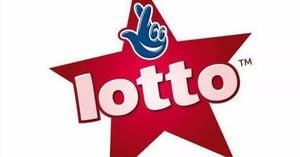On June 5, 2025, Upbit, one of South Korea's leading digital asset exchanges, officially added Ravencoin (RVN) to its Korean Won (KRW) market, opening trading at 5 PM. This addition marks a significant step for the blockchain platform, which has been designed specifically to optimize the transfer of assets like tokens.
Ravencoin is a blockchain platform developed by forking Bitcoin's codebase, utilizing the same UTXO (Unspent Transaction Output) model. However, it introduces several important modifications aimed at enhancing asset transfer efficiency. Notably, Ravencoin features a reduced block generation time of just one minute, compared to Bitcoin's roughly ten minutes, and a total coin issuance capped at 21 billion units—far exceeding Bitcoin's 21 million. Additionally, it includes asset creation and messaging functions, which are set to expand with upcoming features such as messaging and voting capabilities.
The platform emphasizes security, user control, privacy protection, and resistance to censorship, offering a peer-to-peer blockchain that facilitates efficient creation and transfer of assets from one party to another. Users can also implement simple additional features as needed, allowing for flexible development and use.
Trading of RVN on Upbit began with some cautionary measures. Upbit announced that if liquidity proved insufficient immediately after launch, support for trading might be delayed. To stabilize initial trading, the exchange implemented several restrictions: a purchase limit for approximately five minutes, a minimum sell price limit set within 10% below the previous day's closing price, and a two-hour restriction on order types, allowing only limit orders during that period. These measures aimed to prevent excessive volatility and protect investors.
At the time of listing, Ravencoin's previous day's closing price was 0.00000011 BTC, equivalent to approximately 15.97 KRW. However, just six minutes after trading commenced, the price surged to 36.98 KRW, representing a striking 149.86% increase. This dramatic jump has drawn considerable attention, raising questions about whether the so-called "listing pump" would continue or stabilize in the coming days.
Deposits and withdrawals of RVN on Upbit are strictly supported only on the official Ravencoin network, with deposits via other networks not accepted and potentially causing delays in refunds. Furthermore, deposits must comply with the Travel Rule, meaning only those made through virtual asset service providers registered under this regulation will be reflected. Individual wallet users are required to verify ownership, and high-value deposits may necessitate proof of funds, underscoring Upbit's commitment to regulatory compliance and security.
Industry observers note that while Ravencoin's unique features position it as a promising platform for asset transfer, its market performance remains intertwined with broader cryptocurrency trends. For instance, Bitcoin, the original protocol from which Ravencoin was forked, was trading at around 144,550,000 KRW on Upbit at the same time as RVN's debut.
Upbit has reminded investors that digital assets can be highly speculative and subject to rapid price fluctuations influenced by market demand and regulatory developments. The exchange emphasized that investment decisions and responsibility lie solely with the investors themselves.
For those interested in further details, Ravencoin's official website, social media channels, and whitepaper provide comprehensive information about the platform's technology and roadmap.
The addition of Ravencoin to Upbit's KRW market represents a notable development in South Korea's cryptocurrency landscape, reflecting growing interest in blockchain platforms that prioritize asset transfer efficiency and security. Whether RVN's early price surge signals sustained growth or a volatile market reaction remains to be seen, but its entry onto a major exchange like Upbit certainly puts it on the radar of many investors and blockchain enthusiasts.
![[속보] 레이븐코인(RVN) 상장 첫날 시세 얼마?...상장빔 후끈?](https://thumbor.evrimagaci.org/P-48EA79r-RqjbiGySnnokFdv1o=/200x0/tpg%2Fsources%2F23cf88e9-8517-47b1-9dc2-9747fc94fb3b.jpeg)



